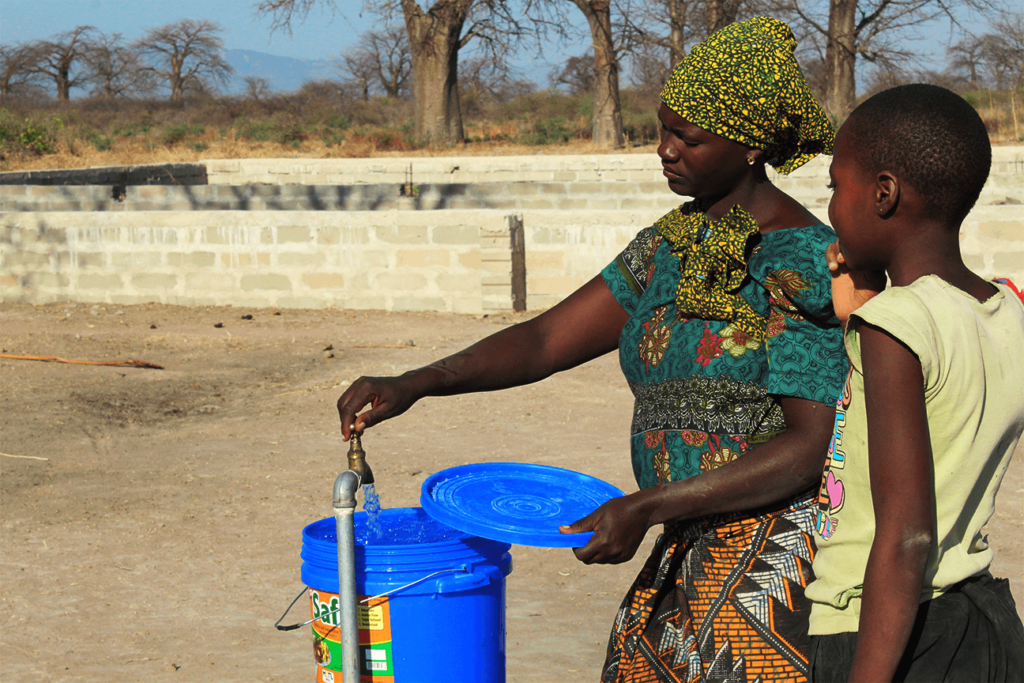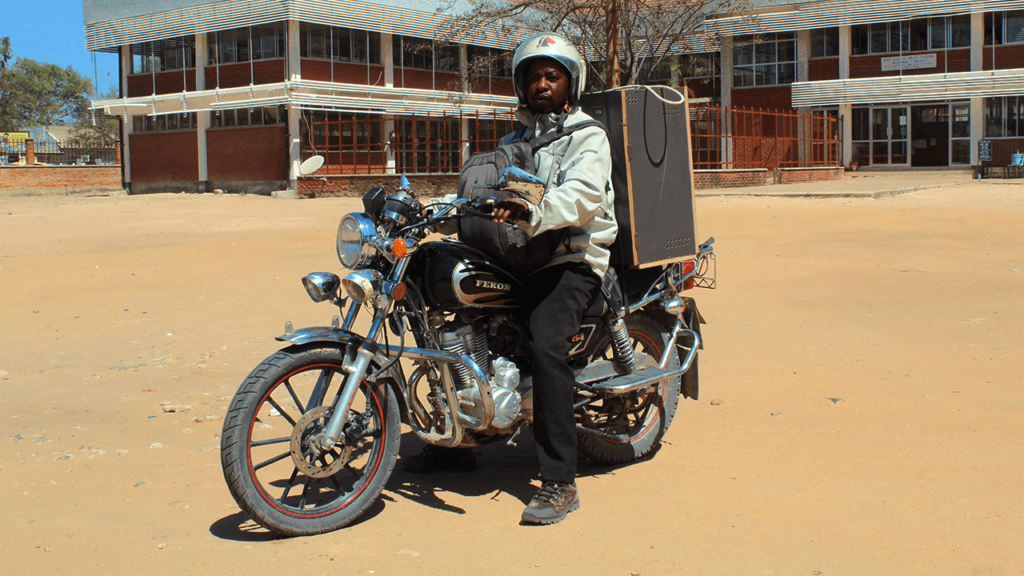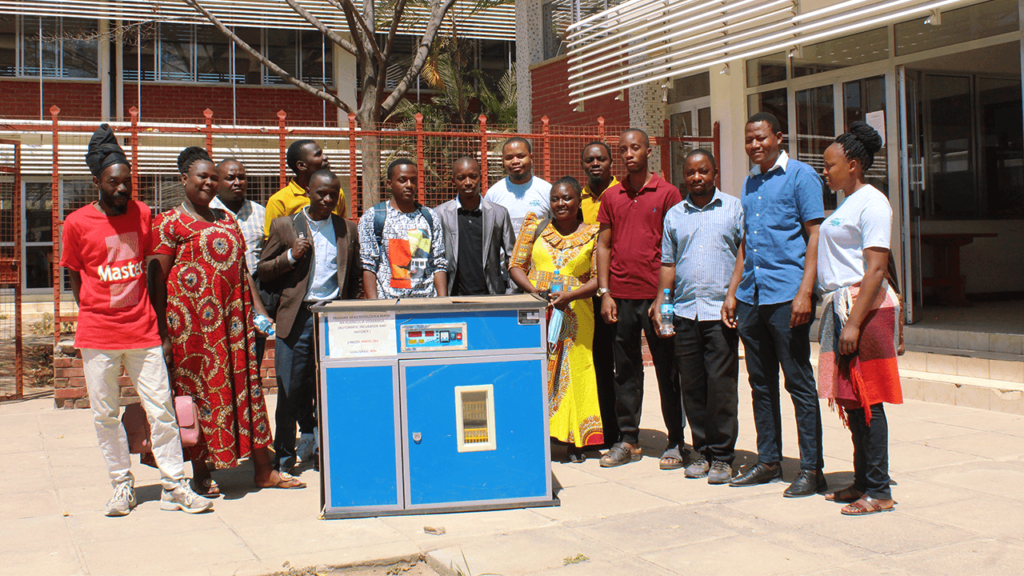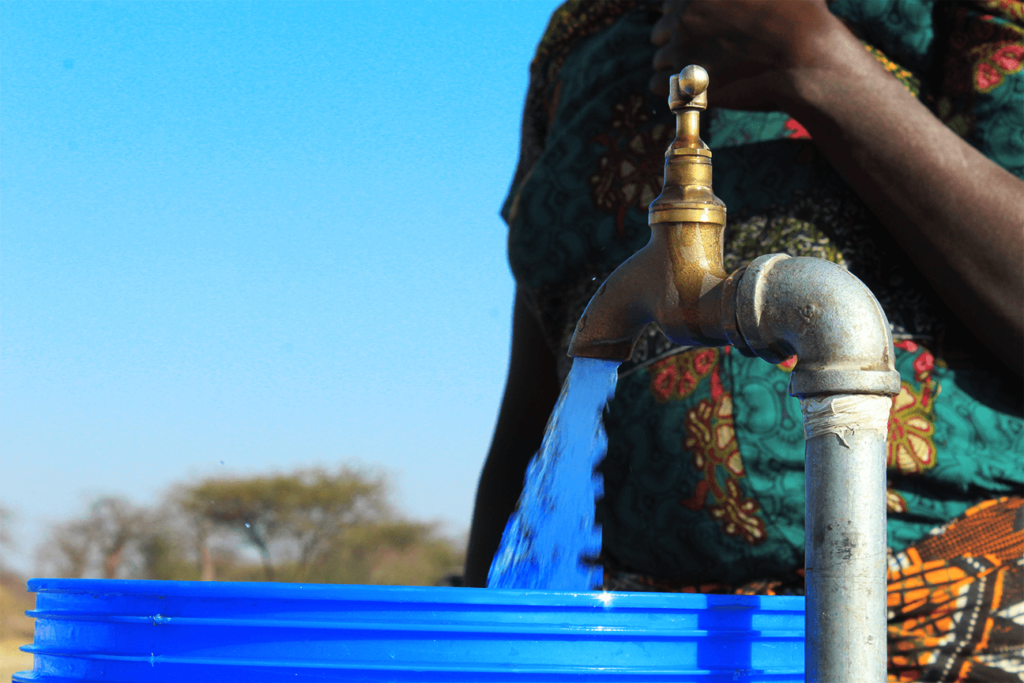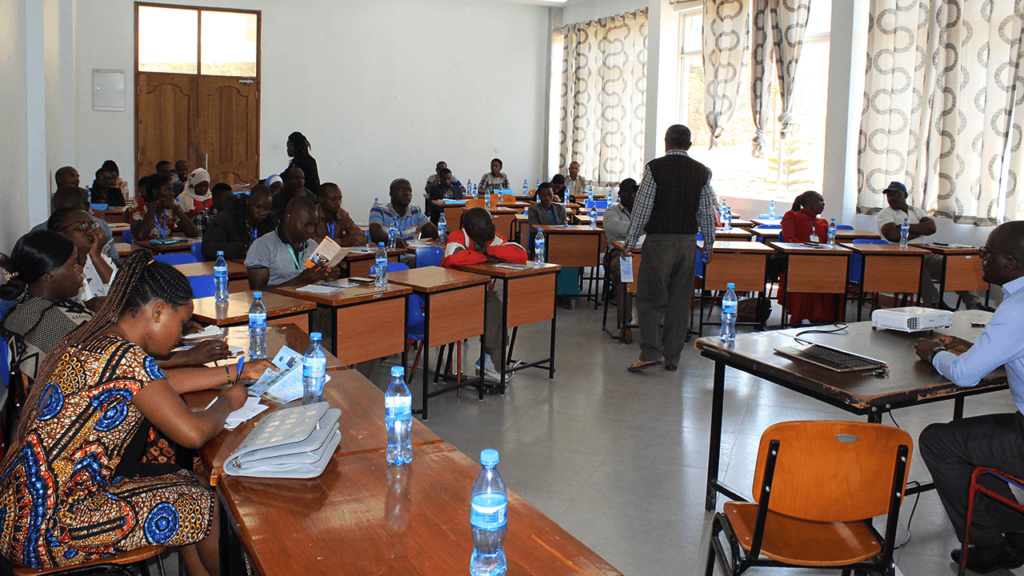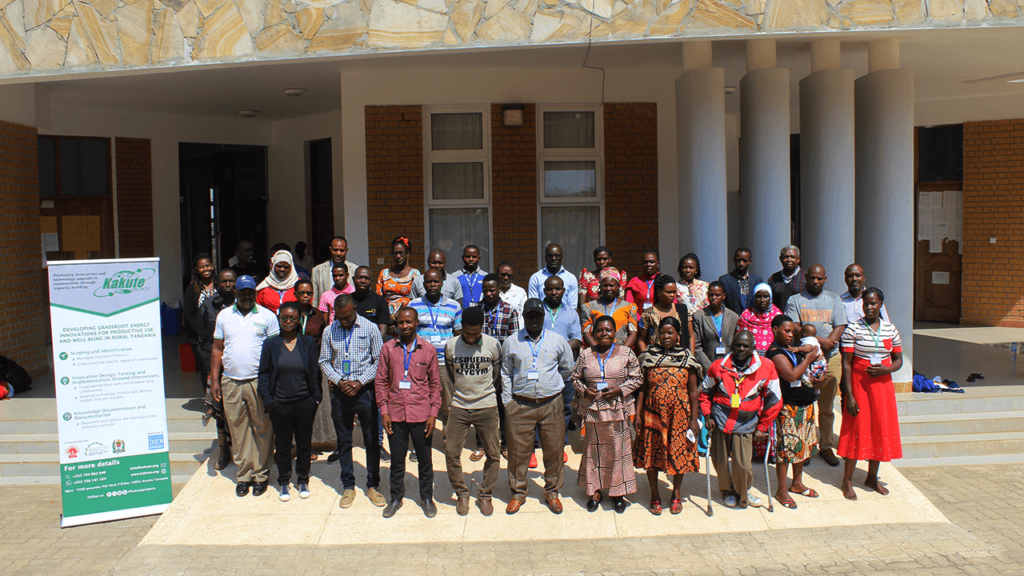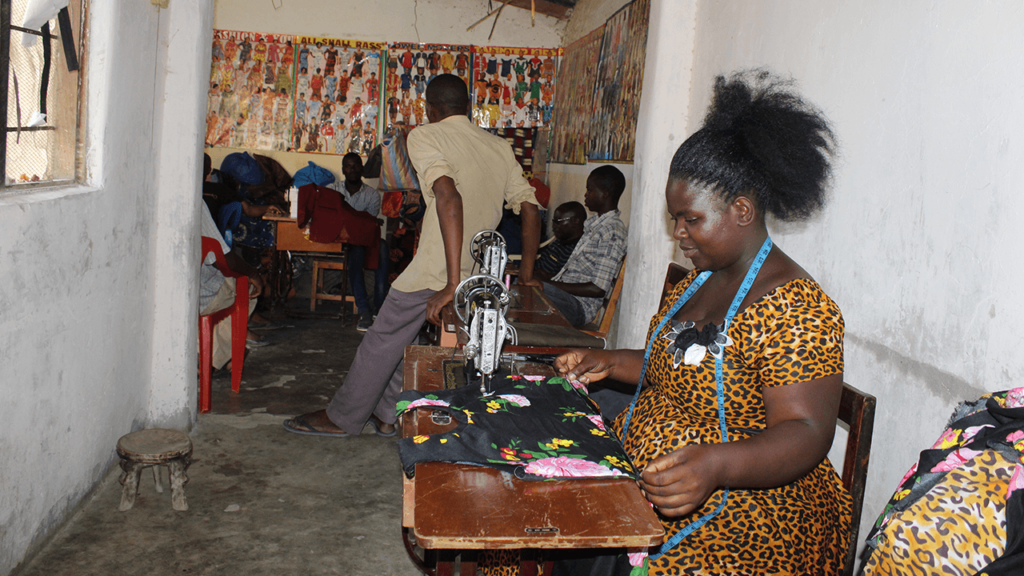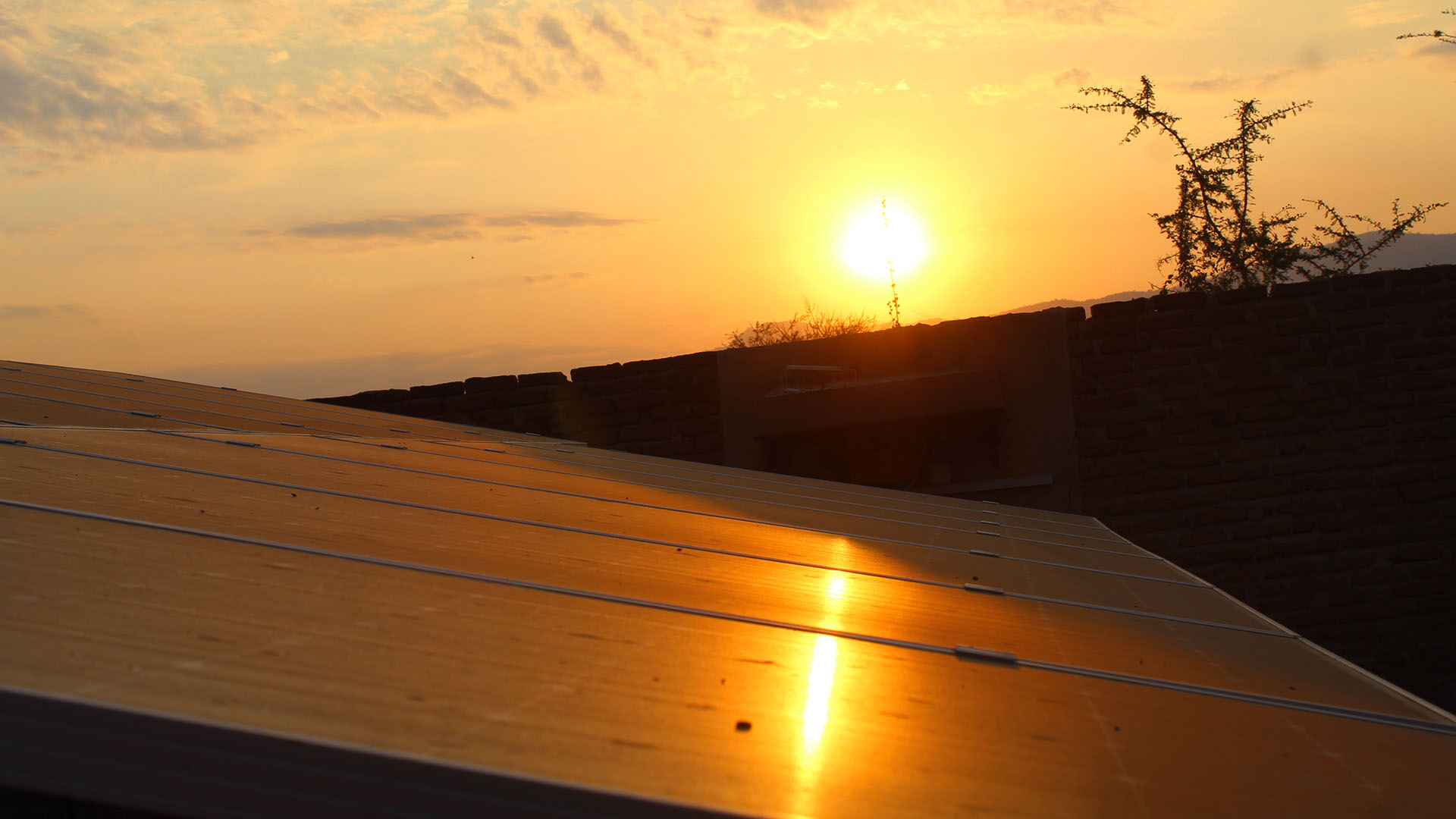DEVELOPING GRASSROOT ENERGY INNOVATIONS FOR PRODUCTIVE USE
Developing Grassroots Energy Innovations for Productive use and Wellbeing in Rural Tanzania
The project is about fostering and nurturing viable grassroots technology innovations through the use of decentralized energy (solar energy)
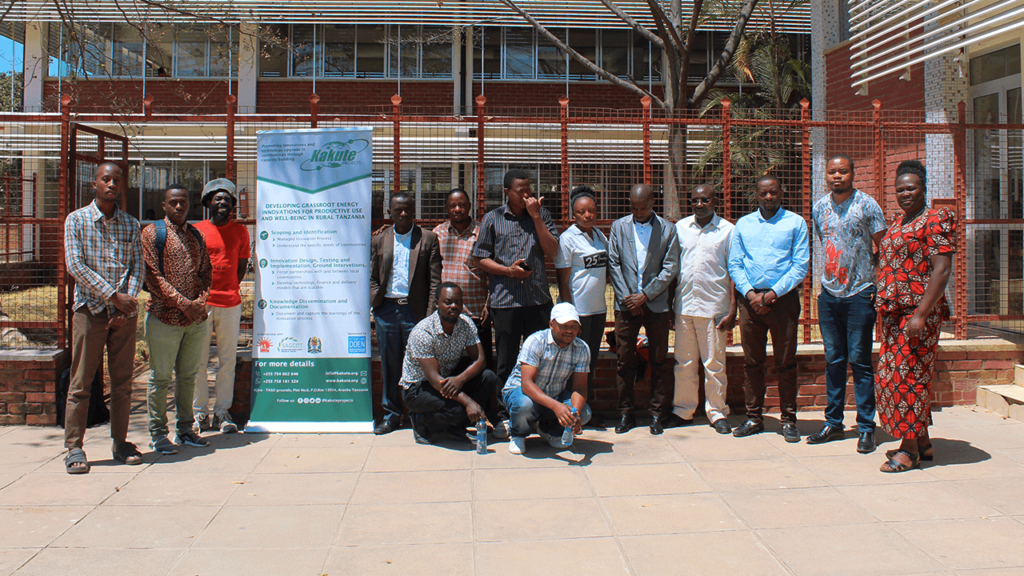
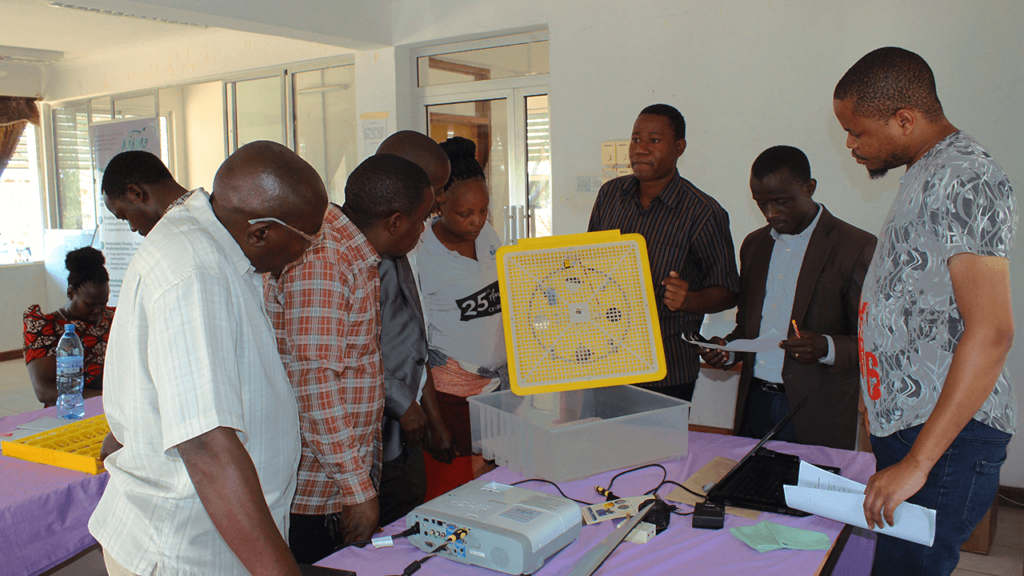
The four major objectives for the project include:
- To understand the specific needs of communities, identify innovations that address those needs, understand the challenges faced technologically and non-technologically.
- Forge partnerships with and between local communities, energy enterprises, community organizations, financial institutions, educational institutions, and other stakeholders to develop and facilitate local innovative solutions.
- Develop technology, finance and delivery models that are scalable.
- To document and capture the leanings of the innovation process.
TRAINING & COMMUNITY AWARENESS
We provide training to entrepreneurs who are willing to add innovation to their businesses including adopting new technologies in order to scale up their businesses. We are also making community awareness for the community around the area where we have installed the intervention in order to adopt it and use it for their economic and social development.
Ground Interventions
Strengthening livelihood of rice threshing entrepreneur: Single phase electrically powered machine for rice threshing center
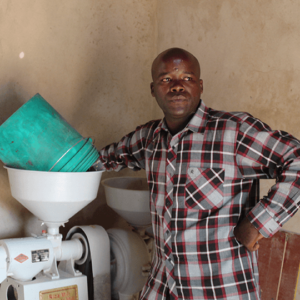
Joshua Machaka, an aspiring entrepreneur hailing from the village of Magozi, Ilolo mpya ward located in Iringa region of Tanzania. Apart from being maize, and rice producer, he own a rice threshing machine, which caters to the ever-growing needs of rice threshing in the village of Magozi. Joshua started his business in 2015, by processing maize flour, by using a machine operated by using fuel (diesel) currently he uses electrically powered single rice huller machine, and he has employed 2 casual labors to assist him in rice threshing activities. Joshua, being a champion entrepreneur in the Magozi village has been able to build good connect with the local community development department, rice producers in Ilolo mpya ward and other entrepreneurs in the region.
However, his entrepreneurial spirit constrained by issues around the enabling environment. He initially owned only a maize mailing machines which use fuel (diesel) which produce low quality processed flour. This inefficient method caused many problems: including producing flour which smell diesel, high cost of operating including price for fuel and maintenance. Moreover, Joshua constrained by producing flour which is brown in color because of using outdate machine
KAKUTE identified these challenges through the Ward Executive officer, Miss. Bestina After the initial identification of the entrepreneur, through a local enterprise, a need assessment was conducted to understand gaps in the entrepreneurs’ livelihoods. The solution suggested involved an entire ecosystem of interventions: Joshua Machaka received single phase electrically powered rice threshing machines, which eased his efforts and offered him the opportunity to produce rice of high quality. To make sure that there is a local supporting system for repairing and maintaining the solar powered machines, technicians from Don Bosco, closely involved in the project. Further, KAKUTE also provided training on bookkeeping and business development to help Joshua run his businesses more efficiently. This entire ecosystem of gap identification and resolution from various partners helped the entrepreneurial couple in many spheres.
- Joshua Machaka now threshing up to six (6) bags of rice per day since the installation of a single phase rice huller machine in his compound as opposing maize mailing machine
- The increased productivity enabled Joshua to sell processed rice
- Their monthly income increased by TZS 800,000. Their monthly savings are now in the range of TZS 100,000 – 200,000.
- Production of rice of good quality and color.
Apart from these quantitative benefits of the electricity powered rice huller machines, these host of interventions managed to effectively expand the opportunities that the family had reason to value. The existing earlier structural barriers (brown flour, low efficiency of diesel machines, processed flour smell fuel) restricted Joshua from pursuing livelihoods that he valued. Post-intervention, even though he works eleven to fourteen hours a day (compared to five earlier), this increases in working hours reflects the increased set of opportunities that Joshua Machaka has received.
Thus, such interventions aid not only the economic development of the individual, household, and the local economy but also aids the entrepreneurial aspiration of the champion entrepreneurs. As next steps, potential financial models are being developed to suit the cash flow of the entrepreneur.
Strengthening Livelihood of an Entrepreneur: Solar Powered Barbershop
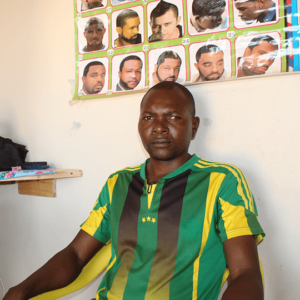 Greyson Mnyavanu an aspiring entrepreneur hailing from the village of kimande, in Itunundu ward located in Iringa region of Tanzania. Apart from being producer of rice, a shopkeeper he is offering hair shaving services as he owns a barbershop which caters to the ever-growing needs of hair and beard shaving services in Itunundu ward.
Greyson Mnyavanu an aspiring entrepreneur hailing from the village of kimande, in Itunundu ward located in Iringa region of Tanzania. Apart from being producer of rice, a shopkeeper he is offering hair shaving services as he owns a barbershop which caters to the ever-growing needs of hair and beard shaving services in Itunundu ward.
Greyson started his business in 2021, by transforming his butcher room into a barbershop due to inadequate clients in the meat business. He then transforms his meat business into a barbershop so as to cater for the need of hair and beard shaving services in Itunundu ward. Greyson being a champion entrepreneur in Itunundu ward ward he has been able to build good connect with the local community development department, students, and other residents of the nearby villages.
However, his entrepreneurial spirit constrained by issues around the enabling environment. Frequent power cut made the business of a barbershop not performing all the time hence reduce the margin that could have being obtained, from hair and beard shaving business as well as mobile phone charging services.
KAKUTE identified these challenges through ward executive officer. After the initial identification of the entrepreneur, through a local enterprise, a need assessment was conducted to understand gaps in the entrepreneurs’ livelihoods. The solution suggested involved an entire ecosystem of interventions: Greyson received solar powered barbershop which eased their efforts and offered him the opportunity to provide hair and beard shaving, and mobile phone charging service. To make sure that there is a local supporting system for repairing and maintaining the solar powered barbershop, technicians from Don Bosco, closely involved in the project. Further, KAKUTE also provided training on bookkeeping and business development to help Greyson to run his businesses more efficiently. This entire ecosystem of gap identification and resolution from various partners helped the entrepreneurial couple in many spheres.
Basing on the intervention provided by KAKUTE, the following achievement realized: –
- Increase his household revenue through mobile phone charging, and hair shaving services
- The intervention has helped Greyson to utilize his time effectively as after he finished his farming activities, he spends the rest of the time in his barbershop
Apart from these quantitative benefits of the solar powered barbershop, the host of interventions managed to effectively expand the opportunities that the family had reason to value. The existing earlier structural barriers (inadequate customer for meat, and unavailability of barbershop in kimande village which restricted Greyson from pursuing livelihoods that he valued. Post-intervention, even though he works twelve hours a day (compared to six hours earlier), this increases in working hours reflects the increased set of opportunities that Greyson has received.
Thus, such interventions aid not only the economic development of the individual, household, and the local economy but also aids the entrepreneurial aspiration of the champion entrepreneurs. As next steps, potential financial models are being developed to suit the cash flow of the entrepreneur.
Strengthening livelihood of Berber Shop entrepreneurs: Solar powered Hair cutting machine for a cutting hair.
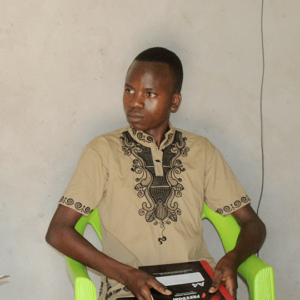 Greyson Philipo Mlugu, he is youth and an entrepreneurs from Zepisa A village located in the Dodoma region of Tanzania. Apart from Tailoring he own a Berber shop saloon and phone charging business which helps him to meet his needs as well as the needs of the family including parents. Under barbershop saloon he have ability of cutting different cutting styles as per modern styles. Also, under phone charging, he charges both normal and smartphone charges. Before starting his business, he was a student of Mr. Lucas as a tailoring student. This was after graduating secondary education in 2018, Unfortunately, he is not have ability to employ other 2people since his business is still in the grassroot.
Greyson Philipo Mlugu, he is youth and an entrepreneurs from Zepisa A village located in the Dodoma region of Tanzania. Apart from Tailoring he own a Berber shop saloon and phone charging business which helps him to meet his needs as well as the needs of the family including parents. Under barbershop saloon he have ability of cutting different cutting styles as per modern styles. Also, under phone charging, he charges both normal and smartphone charges. Before starting his business, he was a student of Mr. Lucas as a tailoring student. This was after graduating secondary education in 2018, Unfortunately, he is not have ability to employ other 2people since his business is still in the grassroot.
The market segment of his business is based on students, and community member around the community of Zepisa A as well as other areas around the village. Sometimes he follow customers to their houses and sometimes customers follow him since he own the mobile system of PPP. Furthermore, these activities help him to meet the needs his needs as well as the needs of their family.
Before being given the PPP battery, he was conducting local cutting services by using local tools whereby he faced challenges like failure to cutting modern styles, low price of cutting (300 per @ customer) as well as few customers (3 per day) and other challenges.
KAKUTE identified these challenges through the MEO Mr. Eliabu and 1 community member Mr. Lucas as well as the community awareness conducted to the community by KAKUTE Projects. After the initial identification of the entrepreneur, through a local enterprise, a need assessment was conducted to understand gaps in the entrepreneurs’ livelihoods. The solution suggested involved an entire ecosystem of interventions: Grayson Mlugu received PPP battery which is to be charged by solar power. The battery has simplified his activities since they system is mobilize so have ability to conduct door to door cutting services.
To make sure that there is a local supporting system for repairing and maintaining the solar powered machines, technicians from Don Bosco foundation’s program were closely involved in the project. Further, KAKUTE also provided training for business development to help him run their businesses more efficiently. This entire ecosystem of gap identification and resolution from various partners helped the entrepreneurial in many spheres.
- He is able to increase up their daily productivity by a good 55-70%: from 3=-4 customers per to 5-7 and above customers per day
- The increased productivity enabled Grayson to think of diversifying his entrepreneurial activities by opening a barbershop in the village (yet built opened). So, all activation are conducted to the new G-Berber shop salon.
- Their monthly income increased by TZS 70,000. His monthly savings are now in the range of TZS 30000-40000 per month.
- A reduction in the physical effort of running the sewing business had a positive impact on the quality of their services.
Apart from these quantitative benefits of the solar-powered machines, these host of interventions managed to effectively expand the opportunities that the family had reason to value. Earlier, existing structural barriers (physical effort, low efficiency of manual machines) restricted him from pursuing livelihoods that they valued. Post-intervention, even though they work 6 to 8 hours a day (compared to 3-4 earlier), this increase in working hours reflects the increased set of opportunities that he have received.
Generally, such interventions aid not only the economic development of the individual, household, and the local economy but also aids the entrepreneurial aspiration of the champion entrepreneurs. As next steps, potential financial models are being developed to suit the cash flow of the entrepreneur.
Strengthening livelihood entrepreneur in Mbalawala, Dodoma region: Solar powered Digital center
Christopha Chilungu, a resident of Mbwala village in Dodoma, is a spirited entrepreneur. Hailing from a village with no access to electricity, Christopha, a government trained agricultural officer, was involved in farming Sunflower, sorghum, ground nuts, and Macedonian nuts (since 2012) as his primary source of livelihood. He earns around TZS 24,000 from farming. His secondary source of livelihood was being the sole provider of M-Pesa services in his village. He would pre-buy mobile money and sell it to customers for cash, while also selling cash in exchange of mobile money from the customers. The customers for both livelihoods were mainly from his village and surrounding areas.
However, Cristopha faced many obstacles. From weeds and insects infesting his crop to improper market linkages to sell his produce, the success of his farming livelihood depended on a series of exogenous factors outside his control. Moreover, his M-Pesa business was greatly hampered by the absence of electricity. Because M-Pesa required mobile phones to operate, business profits were contingent on being able to access mobile phones with charged batteries. If phones were not charged, no M-Pesa transactions could occur. This was a big problem for Christopha’s business.
After conducting need assessment surveys of various wards, KAKUTE narrowed down to three wards after considering the location and accessibility of those villages. KAKUTE then identified potential entrepreneurs who were willing to engage in livelihoods that used alternative forms of energy (solar, in this case). Cristopha was one of the entrepreneurs KAKUTE worked with to set up various business that used solar energy. KAKUTE intervened by providing energy access through decentralize solar solutions to enable Christopha to conduct his activities and adding other aspects as well. This intervention, which supplied an alternative form of energy not only helped Cristopha’s M-Pesa business but also helped him set up more businesses that in-turn facilitated the creation of new markets.
From solar based electricity sprang three unique business that helped Cristopha, his customers, and the local economy. The first business used solar power to charge mobile phones. This was crucial for both Cristopha’s M-Pesa business, and for his customers who wanted to use their mobile phones for private purposes. The second business used solar energy to operate a 43-inch television that catered to the interests of the public. People now come and watch their favourite sport, football, on the big TV screen. His shop is now a place of social gathering and entertainment. Cristopha also managed to lend some lighting service to nearby businesses, which offered them the opportunity to stay open late until evening. The ability to stay open late sprang up a new evening local economy, where people would come, have a drink from the brewery and watch television. While Cristopha benefitted financially, his rural community benefited from an increased set of choices and businesses. People were able to seek higher levels of happiness and satisfaction by participating more in the local economy. Thus, the impact of these businesses was observed not only as a financial gain for Christopha, but also as a gain for society and other businesses.
The financial gains for Christopha were quite significant:
- The phone battery recharging business generates revenues of around TZS 56,000 per month.
- The recharging business also helped his M-Pesa business by removing structural barriers (an un-charged phone) that prevented potential customers from accessing services. Thus, the battery recharging business also fostered financial inclusion in the village, and his M-Pesa business, which makes around TZS 120,000 per month.
- The television business caters to around 50 people every day, thereby generating around TZS 450,000 per month.
- By lending electricity to other businesses to say open in the evenings, Christopha earns around TZS 45,000 per month.
Christopha is also interested in expanding his set of businesses by opening a barber shop. His entrepreneurial spirit is being supported by KAKUTE, who is providing Cristopha with assistance and guidance for his solar powered business. Such sustainable energy-based interventions guarantee energy stability and offer entrepreneurs like Cristopha profitable avenues to tap into. In turn, these businesses employ people and offer services that people value. Thus, when interventions like that of Christopha are viewed from a holistic perspective, securing access to decentralized energy is a sustainable way to strengthen different interlinked aspects of the communities.
Strengthening livelihood entrepreneur in Mbalawala, Dodoma region: Solar powered lighting and phone charging system.
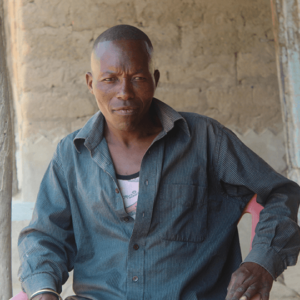 Mathias Masumbuko who is (disability person with Dumber situation) and his wife, are two aspiring entrepreneurs hailing from the village of Mbalawala – Muungano located in the Dodoma region of Tanzania. Apart from being maize, and millet farmers, they own a milling machinery, local alcohol selling and a phone charging service which helps them to meet their needs in the region. Before starting his business, Mr. Mathias Masumbuko before starting his activities, he was working to other milling machines, after getting the salaries, he saved and buying a piece of land. After 5 years, he sold that land for 2 million and get the capital of buying his own machinery which is running till now. Furthermore, his wife started selling alcohol in 2004 and they all started their own milling activities in 2013.
Mathias Masumbuko who is (disability person with Dumber situation) and his wife, are two aspiring entrepreneurs hailing from the village of Mbalawala – Muungano located in the Dodoma region of Tanzania. Apart from being maize, and millet farmers, they own a milling machinery, local alcohol selling and a phone charging service which helps them to meet their needs in the region. Before starting his business, Mr. Mathias Masumbuko before starting his activities, he was working to other milling machines, after getting the salaries, he saved and buying a piece of land. After 5 years, he sold that land for 2 million and get the capital of buying his own machinery which is running till now. Furthermore, his wife started selling alcohol in 2004 and they all started their own milling activities in 2013.
However, their entrepreneurial spirits were constrained by issues around the enabling environment. They conducted their activities in few hours since they were conducted only at noon time since they did not have any source of lighting which could help them to conduct their activities at night. Also, they did not have a permanent communicating with customers because their phones was mostly off since they did not have power for charging their phones all times.
KAKUTE identified these challenges through the Extension Officer Mr. Ngeleja and other community members. After the initial identification of the entrepreneur, through a local enterprise, a need assessment was conducted to understand gaps in the entrepreneurs’ livelihoods. The solution suggested involved an entire ecosystem of interventions: Mathias Masumbuko and his wife received solar power which supporting phone charging and lighting. To make sure that there is a local supporting system for repairing and maintaining the solar powered machines, technicians from Don Bosco foundation program were closely involved in the project. Further, KAKUTE also provided community awareness around their areas so as to help other people to understand what is going on to their area. Also, KAKUTE projects by participating with the technicians from Don Bosco were giving them technical advice on the proper ways of running their activities in a way which would lead to positive impacts to their activities.
- They were able to ramp up their daily productivity by a good 75-95%: from, selling 10ltr per day to 22 litres per day since he sale local alcohol during night too. On top of that, he charge phones and conducting milling machinery activities by processing more than 250 per day.
- The increased productivity enabled him to think of diversifying their entrepreneurial activities by feeling to buy Tv so as to open video showing centre.
- Their monthly income increased by TZS 750,000. Their monthly savings are now in the range of TZS 100,000-200,000
- A reduction in the physical effort of running the sewing Milling machinery business had a positive impact on the quality of their household income.
- On top of all these things, because of the light bulb, Mr. Masumbuko and his wife were able to work in the evenings, thereby lengthening their work time.
Apart from these quantitative benefits of the solar-powered machines, these host of interventions managed to effectively expand the opportunities that the family had reason to value. Earlier, existing structural barriers (physical effort, low efficiency of manual machines) restricted him pursuing livelihoods that they valued. Post-intervention, even though they work eight to twelve hours a day (compared to six earlier), this increase in working hours reflects the increased set of opportunities that they have received.
Thus, such interventions aid not only the economic development of the individual, household, and the local economy but also aids the entrepreneurial aspiration of the champion entrepreneurs. As next steps, potential financial models are being developed to suit the cash flow of the entrepreneur.
Strengthening livelihood of tailoring entrepreneur: Solar powered sewing machine for a tailoring center
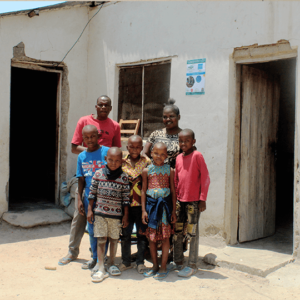 Pendo and her husband, Lucas, are two aspiring entrepreneurs hailing from the village of Zepisa, located in the Dodoma region of Tanzania. Apart from being maize, groundnut and sunflower farmers, they own a tailoring business and a tailoring training centre, which caters to the ever-growing needs in the region. The tailoring business designs and stitches male and female clothing and receives orders for school uniforms. Before starting his business, Lucas had attended a two-year vocational training for tailoring in 2004, at the YMCA college in Dodoma. A year after his graduation, in 2007, he started his tailoring business. This business employs three additional people and has three more apprentices in training. They currently use eight sewing machines (four solar, four manual). Pendo, being a champion entrepreneur in the region has been able to build good connect with the local community development department and other entrepreneurs in the region.
Pendo and her husband, Lucas, are two aspiring entrepreneurs hailing from the village of Zepisa, located in the Dodoma region of Tanzania. Apart from being maize, groundnut and sunflower farmers, they own a tailoring business and a tailoring training centre, which caters to the ever-growing needs in the region. The tailoring business designs and stitches male and female clothing and receives orders for school uniforms. Before starting his business, Lucas had attended a two-year vocational training for tailoring in 2004, at the YMCA college in Dodoma. A year after his graduation, in 2007, he started his tailoring business. This business employs three additional people and has three more apprentices in training. They currently use eight sewing machines (four solar, four manual). Pendo, being a champion entrepreneur in the region has been able to build good connect with the local community development department and other entrepreneurs in the region.
However, their entrepreneurial spirits were constrained by issues around the enabling environment. They initially owned only manual tailoring machines which required constant foot movement to power the same. This inefficient method caused many problems: not only did Pendo and Lucas end up physically exhausted with swollen legs and an aching back, but they were also not able to complete their tailoring orders in time. This led them to compromise the quality of the training they imparted at their training centre. Moreover, Pendo and Lucas were further constrained by the lack of availability of light in the evening, which rendered their tailoring abilities useless at those times.
KAKUTE identified these challenges through the Ward Executive officer, Mr. Mofu. After the initial identification of the entrepreneur, through a local enterprise, a need assessment was conducted to understand gaps in the entrepreneurs’ livelihoods. The solution suggested involved an entire ecosystem of interventions: Pendo and Lucas received solar powered sewing machines and a solar powered light bulb, which eased their strenuous efforts and offered them the opportunity to work post sunset. To make sure that there is a local supporting system for repairing and maintaining the solar powered machines, technicians from Don Bosco and the incubatees from IMED foundation’s program were closely involved in the project. Further, KAKUTE also provided training on bookkeeping and business development to help Pendo and Lucas run their businesses more efficiently. This entire ecosystem of gap identification and resolution from various partners helped the entrepreneurial couple in many spheres.
1) They were able to ramp up their daily productivity by a good 75-100%: from five pairs of trousers and four dresses a day to 10 trousers and seven dresses a day, on top of a constant barrage of school uniform orders.
2) The increased productivity enabled Pendo and Lucas to think of diversifying their entrepreneurial activities by opening a shop in their village (not yet opened, they are still saving money).
3) Their monthly income increased by TZS 800,000. Their monthly savings are now in the range of TZS 100,000 – 200,000.
4) A reduction in the physical effort of running the sewing business had a positive impact on the quality of their training centre. They were able to devote more time and effort to their trainees, which would help create a cadre of tailors who would be able to serve the community better.
5) On top of all these things, because of the light bulb, Pendo and Lucas were able to work in the evenings, thereby lengthening their work time while simultaneously decreasing their work effort.
Apart from these quantitative benefits of the solar-powered machines, these host of interventions managed to effectively expand the opportunities that the family had reason to value. Earlier, existing structural barriers (physical effort, low efficiency of manual machines) restricted Pendo and Lucas from pursuing livelihoods that they valued. Post-intervention, even though they work eight to twelve hours a day (compared to six earlier), this increase in working hours reflects the increased set of opportunities that Pendo and Lucas have received.
Thus, such interventions aid not only the economic development of the individual, household, and the local economy but also aids the entrepreneurial aspiration of the champion entrepreneurs. As next steps, potential financial models are being developed to suit the cash flow of the entrepreneur. Since Pendo already is a member of local SACCOS, and has a financial linkage built earlier with the group, the current intervention would be looked at leveraging such opportunities.
Strengthening Livelihood of Poultry Farming Entrepreneur: Solar Powered Egg Incubator.
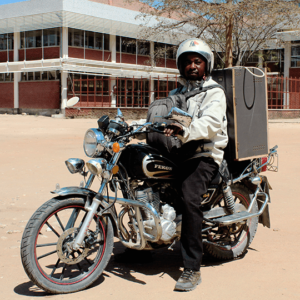 Mr. Lucas Ngeleja is an entrepreneur who conducting his farming, vaccination and hachuring activities in Mbalawala ward of Dodoma city council of Tanzania. He started his vaccination activities in 2006 and horticultural activities in 2017. Before, he was conducting his activities at the town centre where he was renting the house, but soon after, he realized opportunities at Mbalawala and getting the fridge powered by solar as a result of Kakute projects which could help him to store his vaccines, he shifted to Mbalawala ward so as to proceed with his under farming activities he conducting horticultural Farming which help him to get extra money other than those money found from the vaccination and hachuring as well as his employment. Furthermore, he use the profession he have to conduct vaccination activities, In spite of the fact that he increased his income.
Mr. Lucas Ngeleja is an entrepreneur who conducting his farming, vaccination and hachuring activities in Mbalawala ward of Dodoma city council of Tanzania. He started his vaccination activities in 2006 and horticultural activities in 2017. Before, he was conducting his activities at the town centre where he was renting the house, but soon after, he realized opportunities at Mbalawala and getting the fridge powered by solar as a result of Kakute projects which could help him to store his vaccines, he shifted to Mbalawala ward so as to proceed with his under farming activities he conducting horticultural Farming which help him to get extra money other than those money found from the vaccination and hachuring as well as his employment. Furthermore, he use the profession he have to conduct vaccination activities, In spite of the fact that he increased his income.
However, his entrepreneurial spirits were constrained by issues around the enabling environment. he was facing a lot of challenges in storing vaccines because he did not have a fridge as well as any electric power which could help him to store those vaccines. Also, he used long time to go hospital to store those vaccines in spite of the fact that, the officers did not want him to store the vaccines to the hospital. This caused him to stop conducting his activities.
KAKUTE identified these challenges through the Ward Executive officer, After the initial identification of the entrepreneur, through a local enterprise, a need assessment was conducted to understand gaps in the entrepreneurs’ livelihoods. The solution suggested involved an entire ecosystem of interventions: he received solar system which were used to run his fridge for storing vaccines. Also Mr. Ngeleja received the incubator machinery which could help him in hachuring activities so as to help him improve his activities. Furthermore, Kakute projects given him trainings on record keeping and technical advice on improving his activities
Hence,
- He started and improve his activities after having solar system, fridge as well as incubator in spite of the fact that, the incubator have been faced some technical problems which is on progress of being solved.
- Now, Mr. L. Ngeleja have an ability to vaccine more than 230 hens per day and his income have been in creased from 200,000 to 350,000 monthly.
Apart from these quantitative benefits of the solar-powered machines, these host of interventions managed to effectively expand the opportunities that the family had reason to value. Earlier, existing structural barriers as mentioned above, restricted Mr. Ngeleja from pursuing livelihoods that they valued.
Generally, such interventions aid not only the economic development of the individual, household, and the local economy but also aids the entrepreneurial aspiration of the champion entrepreneurs. As next steps, potential financial models are being developed to suit the cash flow of the entrepreneur.
Strengthening Livelihood of Poultry Farming Entrepreneur: Solar Powered Egg Incubator
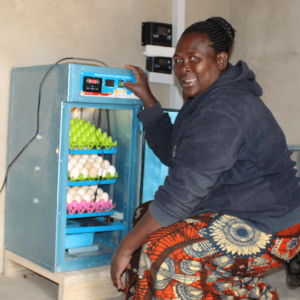 Redemta Kimati and, Yakunga an aspiring entrepreneur hailing from the village of Ifunda, in Ifunda ward located in Iringa region of Tanzania. Apart from being producer of horticultural crops, they are dealing with poultry farming activities which caters to the ever-growing needs of chicks and chicken meat in Ifunda ward.
Redemta Kimati and, Yakunga an aspiring entrepreneur hailing from the village of Ifunda, in Ifunda ward located in Iringa region of Tanzania. Apart from being producer of horticultural crops, they are dealing with poultry farming activities which caters to the ever-growing needs of chicks and chicken meat in Ifunda ward.
Redemta and Yakunga started their business in 2020, by involving in poultry farming activities, by purchasing chicks from silverlands and raise them for meat purpose to cater the market need of chicken meat in Ifunda and Mafinga. Redemta and Yakunga, being a champion entrepreneur in Ifunda ward have been able to build good connect with the local community development department, poultry farming entrepreneurs, entrepreneur who offer catering services in Ifunda ward and other entrepreneurs in the region.
However, their entrepreneurial spirit constrained by issues around the enabling environment. They initially purchase hatched chicks from Silva lands poultry farming company, where the capital to purchase chicks was inadequate hence ended up purchasing few chicks. This inefficient method caused many problems: purchase of few chicks in accordance with the available capital, high cost of chicks. Moreover, Redemta constrained by not acquiring chicks on time when needed.
KAKUTE identified these challenges through Care International. After the initial identification of the entrepreneur, through a local enterprise, a need assessment was conducted to understand gaps in the entrepreneurs’ livelihoods. The solution suggested involved an entire ecosystem of interventions: Redemta and Yakunga received solar powered egg incubator which eased their efforts and offered them the opportunity to produce chicks. To make sure that there is a local supporting system for repairing and maintaining the solar powered egg incubator, technicians from Don Bosco, closely involved in the project. Further, KAKUTE also provided training on bookkeeping and business development to help Redemta and Yakunga to run their businesses more efficiently. This entire ecosystem of gap identification and resolution from various partners helped the entrepreneurial couple in many spheres.
Basing on the intervention provided by KAKUTE, the following achievement realized: –
- They were purchasing chicks from Silvaland poultry company but now they have the ability to hatcher 90 chicks per month.
- The increased productivity from 50 chicken before intervention up to more than150 chicken after intervention, and they plan to have more than 400 chickens
- Their monthly income increased by TZS 1,200,000.
- An availability of solar powered egg incubator had a positive impact on the business of Redemta as chicks will be available on time as well as other poultry farming entrepreneurs at Ifunda ward will be able to purchase chicks which will be available on time from Redemta business.
Apart from these quantitative benefits of the solar powered egg incubator, these host of interventions managed to effectively expand the opportunities that the family had reason to value. The existing earlier structural barriers (lack of chicks on time and high cost of purchasing chicks) restricted Redemta from pursuing livelihoods that she valued. Post-intervention, even though she works fifteen hours a day (compared to twelve earlier), this increases in working hours reflects the increased set of opportunities that Redemta has received.
Thus, such interventions aid not only the economic development of the individual, household, and the local economy but also aids the entrepreneurial aspiration of the champion entrepreneurs. As next steps, potential financial models are being developed to suit the cash flow of the entrepreneur.
Strengthening Livelihood of the Entrepreneur in Zepisa B: A Solar Powered Water Pump for Domestic, Irrigation and Cattle rearing Uses
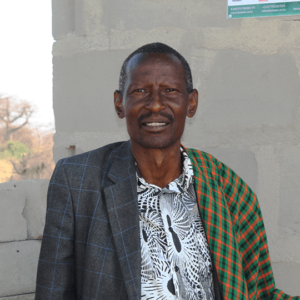 Norman Sigala a dynamic entrepreneur who found in Zepisa B, in Hombolo Makulu ward, in Dodoma region. Despite of involving in other various economic activities, Normal design and drill water from the underground. He owns a well which has got 120 meters. The well was drilled in 2019 so as to meet the demand of water of the citizens of Zepisa. The main reasons for drilling water were for domestic uses, cattle rearing and for irrigation uses as an entrepreneur had an idea to grow various horticultural crops in the 42 acres of land he owned.
Norman Sigala a dynamic entrepreneur who found in Zepisa B, in Hombolo Makulu ward, in Dodoma region. Despite of involving in other various economic activities, Normal design and drill water from the underground. He owns a well which has got 120 meters. The well was drilled in 2019 so as to meet the demand of water of the citizens of Zepisa. The main reasons for drilling water were for domestic uses, cattle rearing and for irrigation uses as an entrepreneur had an idea to grow various horticultural crops in the 42 acres of land he owned.
Norman Sigala foresaw an opportunity in demand for safe water for domestic use, irrigation and for cattle rearing in Zepisa B and drill water in 2019. currently he uses solar powered Water pump, to pull out water from the well, and he has employed 3 permanent employees, among of them one is a manager, and two are security guard. Also, he has employed 57 casual labors who work for different projects.
Norman, being a champion entrepreneur in Zepisa B street has been able to build good connect with the local community of Zepisa A and Zepisa B, animal keepers and other entrepreneurs in the region. However, his entrepreneurial spirit constrained by issues around the enabling environment. He initially owned only a well without technology to pull out water for consumption.
This inefficient method caused many problems: Lack of water for domestic use because he failed to pull out water, lack of water for irrigation and lack of water for cattle rearing. Moreover, Norman constrained by inadequate capital to purchase fuel generator which could be used to pull out water from the well.
KAKUTE identified these challenges through the Ward Executive officer, Mr Eliab. After the initial identification of the entrepreneur, through a local enterprise, a need assessment was conducted to understand gaps in the entrepreneurs’ livelihoods. The solution suggested involved an entire ecosystem of interventions: Norman Sigala received a solar powered water pump, which eased his efforts and offered him the opportunity to pull out water from the well. To make sure that there is a local supporting system for repairing and maintaining the solar powered water pump, technicians from Don Bosco and Dom energy design and solutions are closely involved in the project. Further, KAKUTE also provided training on bookkeeping and business management to the employees of Norman to help businesses more efficiently. This entire ecosystem of gap identification and resolution from various partners helped the entrepreneurial couple in many spheres.
- Norman Sigala now sells up to 70 gallons of water (1400 litters) per day for domestic uses
- The availability of water has now enabled Norman to cultivate various horticultural crops, as he uses water for irrigation.
- The entrepreneur has also constructed an area where animals could drink water and charged 50/=TSH per animal and has the ability to serve more than 100 animals per day.
- The entrepreneur has also created employment opportunities to 3 permanent staff and 57 casual labors, where by 15 are women’s and 42 are men’s
- An availability of solar energy has now created new opportunities for the entrepreneur to provide mobile phone charging service.
Apart from these quantitative benefits of the solar powered water pump, these host of interventions managed to effectively expand the opportunities that the family had reason to value. The existing earlier structural barriers (lack of technology to pull out water from the well) restricted Norman from pursuing livelihoods that he valued. Post-intervention, even though he works nine to eleven hours a day (compared to one to two hours earlier), this increases in working hours reflects the increased set of opportunities that Norman has received.
Thus, such interventions aid not only the economic development of the individual, household, and the local economy but also aids the entrepreneurial aspiration of the champion entrepreneurs. As next steps, potential financial models are being developed to suit the cash flow of the entrepreneur.
Strengthening Livelihood of Tailoring Entrepreneurs: Solar Powered Sewing Machine for a Tailoring Centre in Nzassa, Chihanga, Dodoma region
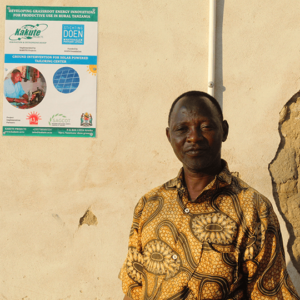 Joseph Lubeleje an aspiring entrepreneur found in the village of Nzasa in Chihanga ward, located in the Dodoma region of Tanzania. Apart from being groundnut, millet and sunflower farmers, he owns a tailoring business and a tailoring training centre, which caters to the ever-growing needs in the region. The tailoring business designs and stitches male and female clothing and receives orders for catechist uniform, school uniforms. Before starting his business, Joseph had attended a two-year vocational training for tailoring in 1992, at Veyula college in Dodoma. A year after his graduation, in 1995, he started his tailoring business. He currently uses 3 sewing machines. Joseph, being a champion entrepreneur in the region has been able to build good connect with the local community development department and other entrepreneurs in the region.
Joseph Lubeleje an aspiring entrepreneur found in the village of Nzasa in Chihanga ward, located in the Dodoma region of Tanzania. Apart from being groundnut, millet and sunflower farmers, he owns a tailoring business and a tailoring training centre, which caters to the ever-growing needs in the region. The tailoring business designs and stitches male and female clothing and receives orders for catechist uniform, school uniforms. Before starting his business, Joseph had attended a two-year vocational training for tailoring in 1992, at Veyula college in Dodoma. A year after his graduation, in 1995, he started his tailoring business. He currently uses 3 sewing machines. Joseph, being a champion entrepreneur in the region has been able to build good connect with the local community development department and other entrepreneurs in the region.
However, his entrepreneurial spirits constrained by issues around the enabling environment. He initially owned only manual tailoring machines which required constant foot movement to power the same. This inefficient method caused many problems such as end up physically exhausted with swollen legs and an aching back, but he also not able to complete his tailoring orders in time. This led him to compromise the quality of the training he imparted at his training centre. Moreover, Joseph constrained by the lack of availability of light in the evening, which rendered their tailoring abilities useless at those times.
KAKUTE identified these challenges through the Street Chairperson, Mr. Patrick Chanzi. After the initial identification of the entrepreneur, through a local enterprise, a need assessment was conducted to understand gaps in the entrepreneurs’ livelihoods. The solution suggested involved an entire ecosystem of interventions: Joseph Lubeleje received solar powered sewing machines and a solar powered light bulb, which eased their strenuous efforts and offered them the opportunity to work post sunset. To make sure that there is a local supporting system for repairing and maintaining the solar powered machines, technicians from Dom Energy Design and solutions were closely involved in the project. Further, KAKUTE also provided training on bookkeeping and business development to help Joseph Lubeleje to run their businesses more efficiently. This entire ecosystem of gap identification and resolution from various partners helped the entrepreneurial couple in many spheres.
- Emerge of the new business of mobile charging service, whereby Joseph can charge 10 up to 20 mobile phones per day.
- Increase productivity as now he reduces time spent in accomplishing in the design and stitches male and female clothes
- The increased productivity enabled Joseph to think of diversifying is entrepreneurial activities by finalizing the construction of new offices, that could be used for teaching centre and sewing centre.
- His monthly income increased as now he earn some income from new business of mobile charging where he can earn 2000/= up to 4000/=Tsh per day as a service charge from mobile phone charging.
- On top of all these things, because of the light bulb, Joseph Lubeleje is able to work in the evenings, thereby lengthening his work time while simultaneously decreasing his work effort.
Apart from these quantitative benefits of the solar-powered machines, these host of interventions managed to effectively expand the opportunities that the family had reason to value. Earlier, existing structural barriers (physical effort, low efficiency of manual machines) restricted Joseph from pursuing livelihoods that they valued. Post-intervention, even though he works 12 hours a day (compared to eight earlier), this increases in working hours reflects the increased set of opportunities that Joseph has received.
Thus, such interventions aid not only the economic development of the individual, household, and the local economy but also aids the entrepreneurial aspiration of the champion entrepreneurs. As next steps, potential financial models are being developed to suit the cash flow of the entrepreneur. Since Joseph has already acquire some loans from microfinance institutions, and has a financial linkage built earlier with that microfinance institution, the current intervention would be looked at leveraging such opportunities.
Ground Intervention for Solar Powered water irrigation and domestic use system in Zepisa B, Dodoma.
Ground Intervention for Solar Powered Tailoring center in Zepisa B, Dodoma
Ground Intervention for Solar Powered Digital center in Mbalawala, Dodoma
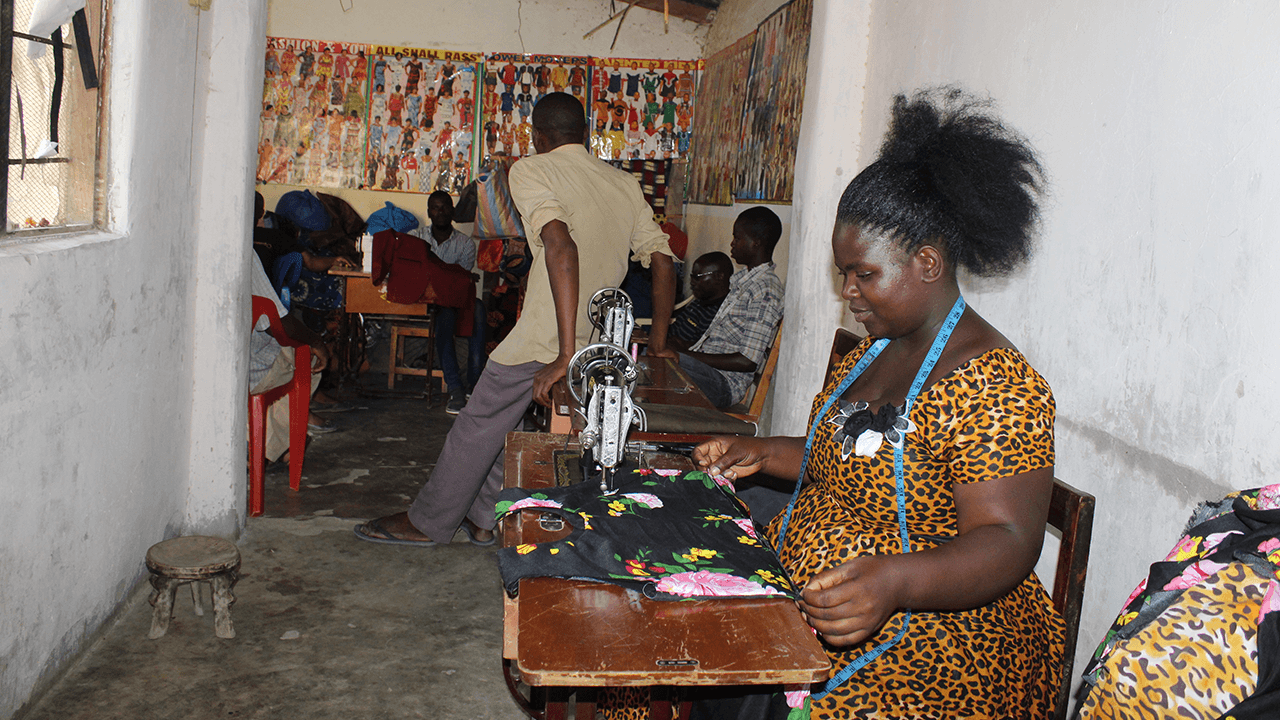
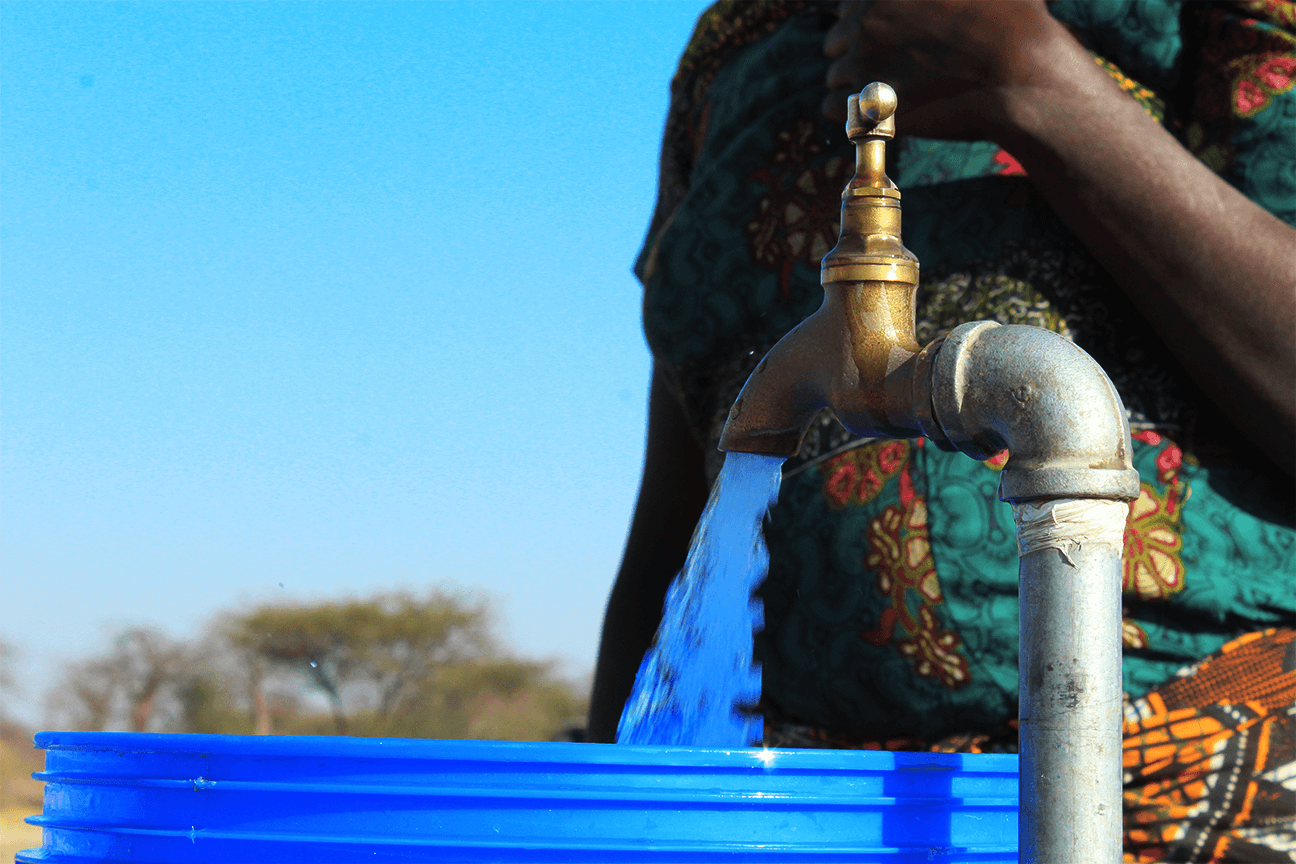
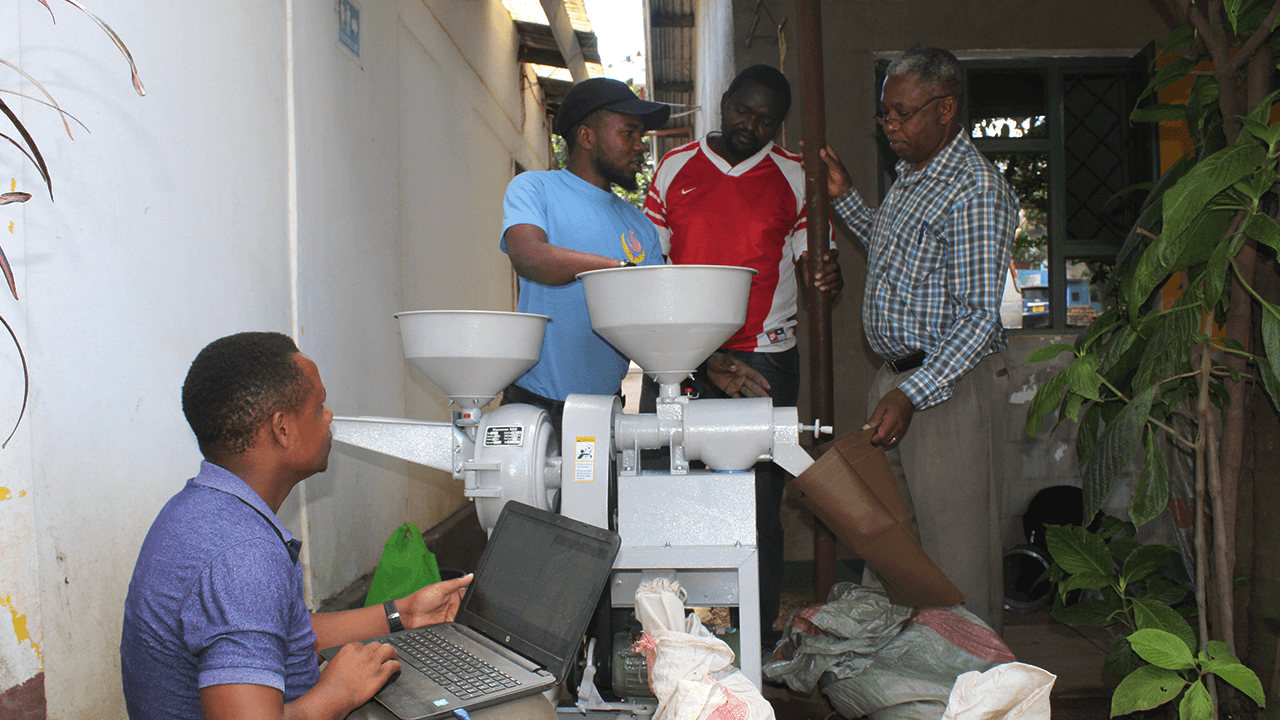
The best way to experience our wide collection of project memories is to visit our documentary library.
